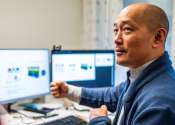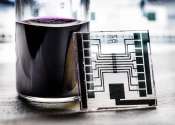Linköping University
Linköping University (in Swedish: Linköpings universitet, LiU) is a state university in Linköping, Sweden. Linköping University was granted full university status in 1975 and is now one of Sweden's largest academic institutions. Education, research and PhD training are the mission of four faculties: Arts and Sciences, Educational Sciences, Health Sciences and the Institute of Technology. In order to facilitate interdisciplinary work, there are 14 large departments combining knowledge from several disciplines and often belonging under more than one faculty. Linköping University emphasises dialogue with the surrounding business sphere and the community at large, both in terms of research and education. In 2010, Linköping University has home to 18,910 students (FTE), 1,288 research students and 3,469 employees, including 336 full professors.
- Website
- http://www.liu.se/
- Wikipedia
- http://en.wikipedia.org/wiki/Link%C3%B6ping_University
Some content from Wikipedia,
licensed under CC BY-SA









